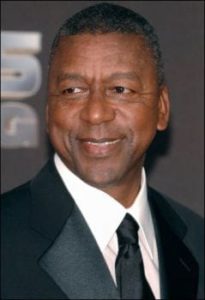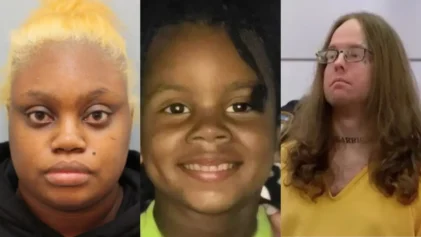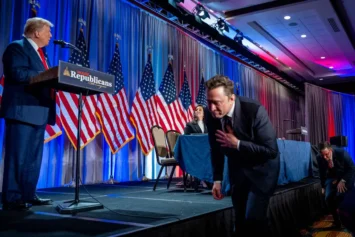
Bob Johnson, founder of BET.
Successful businessman and BET founder Bob Johnson recently weighed in on what Black people should do as America reluctantly enters its new reality under a Donald Trump presidency.
In an open letter published Tuesday, Johnson warned that if Black Americans keep deciding not to vote or make their voices heard in future political elections, sooner or later, the Black voice will be silenced completely. He also noted that last week’s election wasn’t the end all, be all; local elections are coming up soon, giving African-Americans another chance to voice their opinions on the local and state levels.
“We must realize, this is not the last election in America and that elections at every level of government – federal, state and local – will continue to take place,” Johnson wrote. “Our job now is to continue to mobilize in these elections whenever and wherever they occur.”
“We should, as before, educate and inform our voting community about the critical social and economic issues that impact our families, our community and this nation,” he continued.
The most critical point outlined in Johnson’s letter was his entreaty for African-Americans to stop voting for candidates who oftentimes don’t have Black people’s best interests at heart just because they align with a specific political party. He urged Black voters to return to an ideology that best suits their political beliefs.
“Why shouldn’t we, as Black voters, reject the notion that we are locked into one party which undoubtedly limits and dilutes our voting power?” Johnson wrote. “We should, instead, use the power of our vote to support and elect whichever party that best serves our interests.”
“Black people have no permanent friends, no permanent enemies, just permanent interests,” he continued. “That was the [Congressional Black Caucus’s] motto then and Black Americans should embrace it as our rallying cry today.”
Black people have overwhelmingly voted Democratic over the last 50 years, although the party has failed to come through on their behalf on numerous occasions. Black traditionally voted Republican in the years after the Civil War, but things changed in 1932 when roughly 71 percent African-Americans moved to elect Democratic president Franklin D. Roosevelt, according to records kept by the Joint Center for Political and Economic Studies.
Records showed another big jump in Democratic party identification among Black Americans after the Civil Rights Act of 1964 was passed. From 1936 onward, Joint Center data showed that the Republican candidate for president never got more than 40 percent of the black vote — which is very telling since voting among Black Americans was largely restricted or uneven up until the 20th century.
But no matter if a Black individual identifies as Democrat or Republican, Johnson urged that Black voters elect leaders who are best suited for the job and best serve their interests.
“To the Republican Party, we say to you, even though you have ignored us or often times actively conspired against our rights, ‘we have no permanent enemies,'” Johnson said. “To the Democratic Party, we say to you, even though you have taken our vote for granted and often patronized us, ‘we have no permanent friends.'”
“What we do have are ‘permanent interests’ and we invite both parties to demonstrate your understanding of and willingness to respect and address our interests,” he concluded.


